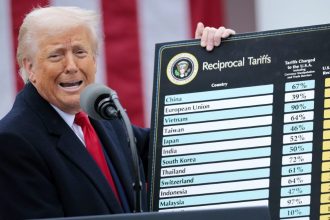The United States has categorically assured Pakistan that it will continue to support the government’s efforts to defeat militancy from ‘North Waziristan to Karachi.’
In a policy statement, read out at a convention convened by the Pakistan Embassy, US Deputy Special Representative Jonathan Carpenter also reiterated Washington’s offer of “tangible material” support to democracy in the country.
Pakistan’s Ambassador Jalil Abbas Jilani opened the convention, informing the participants that US-Pakistan relations were “much stable” now and the two countries were looking for new avenues to further this relationship.
But Mr Carpenter, whose office looks after US ties with Pakistan and Afghanistan, gave a candid review of this relationship and how he saw it unfolding in the near future.
“The government of Pakistan, across all its agencies civil, military, intelligence, is engaged in a full-throttle battle against extremism within its borders,” he said, while pointing to the sacrifices that the Pakistani armed forces had made in North Waziristan.
“The continuing fight there, the efforts in Karachi and elsewhere to weed out militarism, is fundamental to Pakistan’s survival. We will continue to support that with our assistance where we can, and we will continue to encourage Pakistan to act against all militant elements within its borders,’ he said.
“It is fundamental, first and foremost, for Pakistan’s well-being, for the success of its people, its economy and its society.”
He said that after the attack on the Peshawar air base, both governments recognised that there were safe havens on either side of the border and these were a threat to their national security.
While the US would work with them to remove these safe havens, “first of all this must be done by these two governments”, he added.
Mr Carpenter noted that over the last three years, the US had “steadily re-built the foundations of a pragmatic, productive, friendly relationship”.
The focus was on areas where there were shared interests between the two countries, he said, adding that these were areas of “incredible importance to US national interests” and cooperation with Pakistan in those areas had made the United States safer.
“It does not mean there are no areas of disagreement,” he said. “What we are trying hard to do over the last few years is to be forthright in private settings as to what those areas are, to discuss them and to be candid about why we take the positions we do.”
The United States also expects Pakistan to do the same, he added.
“We recognise that Pakistan’s success, broadly speaking, is fundamental to regional stabilities and security, and to US national security,” Mr Carpenter said.
The United States, he said, would do everything it could to promote Pakistan’s success and “the success of this democratically elected government”.
Civilian assistance, he noted, has been the “bedrock of this relationship”.
The US official acknowledged that managing relations between Afghanistan and Pakistan has never been easy.
And because of the recent events in Kunduz and the attack on the air base in Peshawar, “this’s been a particularly difficult time,” with “a lot at stake here”.
Mr Carpenter dispelled the impression that the United States was leaving the region by 2016.
“We have maintained assistance levels in Pakistan and Afghanistan, which is way above anything we are doing globally. These two are the largest recipients of US assistance, security, civilian, in the world,” he said.
The United States, he said, had invested “blood’ and resources in this region and there’s was a recognition in Washington that “these investments must be nurtured, supported, and sustained”.
The US commitment to the region was “absolute and sustaining” and the success of these democratically elected governments in Afghanistan and Pakistan was fundamental to regional stability and to US security, Mr Carpenter said.
Noting the successful democratic transition in Pakistan, he said this was an area where “we are very pleased to support the Pakistanis, in tangible, material ways.”
The US official noted that the Pakistani economy too had improved, and not by anything the US had done but because of the steps the Pakistani government had taken.
The US official noted that the reconciliation process that Pakistan initiated this summer was derailed because of the revelation of Mullah Omar’s death but there remains “a fundamental recognition here that these two countries must work together to solve these problems”.





